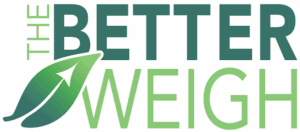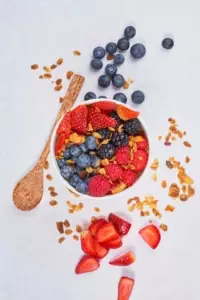What is Cholesterol?
Cholesterol is a type of fat produced by the liver. It is used to build healthy cell membranes, digest fats, manage inflammation, and produce hormones and vitamin D. This essential molecule has been misunderstood to be the cause of cardiovascular disease, leading many health-conscious people to remove it from their diets. However, the story is not that simple.
Should I Reduce Cholesterol in My Diet?
In short – no. Most of the cholesterol in your blood is not from dietary sources, but is actually produced by your body. Therefore, a diet low in dietary cholesterol does not actually address hyperlipidemia (or high serum cholesterol).
Types of Cholesterol
There are a few types of cholesterol. Here are the two we are most concerned with when it comes to risk for disease:
- HDL – high density lipoprotein, aka the “good” cholesterol. High levels of HDL is considered to be protective, because HDL transports cholesterol back to the liver to be excreted from the body.
- LDL – low density lipoprotein, aka the “bad” cholesterol. High LDL can be damaging to the tissues when the molecule is damaged itself.
TIP: The best way to determine if your blood lipids put you at risk for disease is to look at your LDL:HDL ratio. A higher LDL to HDL ratio means a greater risk of heart disease.
A NOTE ON STATINS: If you take a statin to lower your cholesterol, consider supplementing CoQ10, an important nutrient that is depleted by statins. CoQ10 is a naturally occurring antioxidant produced by the body and is responsible for helping convert food into energy. Talk with your doctor about exact dosage before starting supplementation.
While high LDL is considered a warning sign for disease development, what is more important is to consider the full picture. The following factors can cause oxidative stress, which can increase the risk of disease:
- Stress
- Environmental toxins
- Bacterial endotoxins
- Inflammatory lifestyle and diet
Next, we will go into action steps you can take that have been shown by research to decrease LDL cholesterol.
Action Steps
- Focus on Fiber. Fiber comes from plant sources and there are two types: soluble and insoluble. Soluble fiber dissolves in water, forming a “gel” that moves slowly through the intestine, picking up fat and dietary cholesterol along the way. Eventually, these waste products are excreted. An additional benefit of both types of fiber is an improvement in gut health, which may also support healthy cholesterol levels. Men need 30-38 grams of fiber/day, and women need 21-25 grams/day. (PMID: 31126110)
- Joyful Movement. According to the American Heart Association, adults need 150 minutes of moderate-to vigorous-intensity activity every week. At least 2 days of this should be spent on resistance (strength) training to support muscle mass.
- Load up on Antioxidants. Eating colorful fruits and vegetables provide valuable phytonutrients which have been associated with a lower risk of many diseases. (PMID: 7830729)
- Improve Insulin Sensitivity. Insulin resistance may result in decreased HDL, increased LDL and increased triglycerides. (PMID: 15731490)
- Manage Your Stress. We know, everyone is stressed. But chronic stress, if not managed, can cause cortisol to rise and trigger inflammation. This inflammation can increase LDL and lower HDL cholesterol. (PMID: 28471984)
- Include Therapeutic Foods. Many foods have been shown to benefit health due to the compounds present in them. (PMID: 11122780)
- Decrease Inflammation. An anti-inflammatory diet and lifestyle can be a very effective approach to lowering cholesterol. (PMID: 26400429)
Need Guidance Along the Way?
If you want to learn how to apply all of these action steps and specific foods to your unique body and lifestyle, schedule your free discovery call with us today. We are passionate about helping our clients live their best lives and optimize health!

